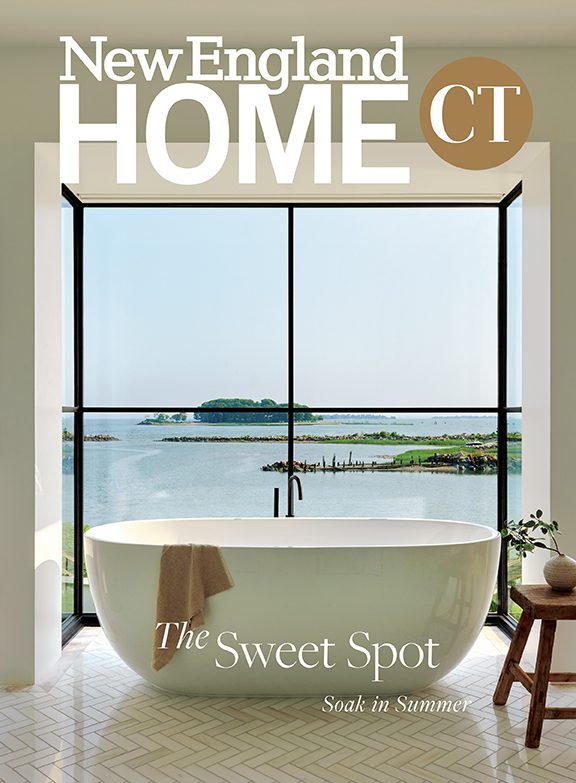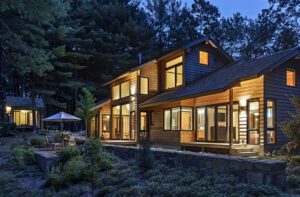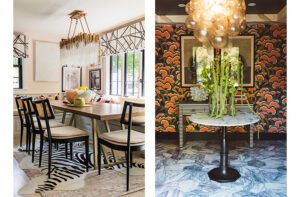What, When, Where: Portsmouth
December 26, 2011
By Debbie Hagan
Just over a week ago, Don Gorvett, a master printmaker, invited me to the re-opening of his gallery, Piscataqua Fine Arts in Portsmouth, N.H.
Hmmm, a Saturday in Portsmouth, during the holidays? It took a split second to reply, yes.
Portsmouth (just an hour north of Boston) is not only one of the three oldest towns in America, but possesses Old World charm, particularly with its beautiful, walkable downtown shopping district. Brick storefronts lean shoulder-to-shoulder along twisty, narrow streets. Think Bath, England, but with a postcard-perfect port.
Don claims it’s the only town between Boston and Portland where businesses are thriving. That’s why he decided to reopen his retail outlet at 123 Market Street, across from the new Banana Republic, and a couple doors down from Three Graces Gallery, which sells a variety of hand-crafted goods for the home, including tables by Portsmouth artist George Beland and tableware and these pendant lamps by potter Erin Moran.

Pendant lamps by Portsmouth potter Erin Moran
At the Piscataqua Fine Arts’ opening, Don greeted guests, who included Robert Townsend of R.E. Townsend Studio, in Georgetown, Mass., who has worked with hundreds of artists, including Jim Dine, Peter Milton and Michael Mazur.

Don Gorvett and Robert Townsend
Don is a reduction woodcut artist, using a process so labor intensive and demanding that I’m virtually in awe of anyone with the nerve to try it, let alone succeed to the degree that Don has. Essentially he uses one wooden block from which he carves and re-carves all of the printing plates, building layer upon layer of color on his prints. After laying a new color, he goes back to the wood block, carves on it again, preparing for the next color printing. Doing this actually destroys the previous plate. Obviously once the process and edition is complete, no more prints of this kind can be made.

Salt Freighters on the Piscataqua, Don Gorvett, reduction woodcut, 1994
Passion for coastal life emerges in all of Don’s work. His eye travels to details and structure–many images hauntingly focused on homes, harbor life or neighborhoods that may not exist any longer or have changed over time.

Hilltop at Twilight, Don Gorvett, reduction woodcut
Architecture and design figure strongly into Don’s work, whether he’s capturing the shape of a salt freighter navigating its way up the Piscataqua River or detailing ironwork crowning the roof of Wentworth by the Sea, as it appeared back in 1992 when it was abandoned (before TMS Architects so loving restored it). The intensity of his skies, the grandness in which he makes the viewer look up to the building, and the tinge of sadness, slightly Hopperesque, gives viewers moments to pause, think about loss and the changing landscape.

Wentworth by the Sea, Don Gorvett, 1992, reduction woodcut
This gallery not only shows and sells Don’s work, but it exhibits some of the finest prints in New England, including works by Sean Hurley. His etchings often reflect scenes in the Cape Ann area, where he lives and works. Just twenty-six year old, Sean is rapidly gaining respect (and purchases) from curators and collectors. His works are in the Boston Athenaeum and Ogunquit Museum.

Great Falls Bleachery, Sean Hurley, etching, 2008
Sean uses a totally different process, and yet his work complements  Don’s–as if they belong together. Sean’s detail is finer, and he is more interested in light and dark contrasts, and yet he speaks of certain poignancy seen abandoned buildings, often factories, whose function and productivity seem a faded memory.
Change is inevitable, and both printmakers remind us of that.

The Paint Factory, Gloucester, Mass., Sean Hurley, etching, 2008
Share
![NEH-Logo_Black[1] NEH-Logo_Black[1]](https://b2915716.smushcdn.com/2915716/wp-content/uploads/2022/08/NEH-Logo_Black1-300x162.jpg?lossy=1&strip=1&webp=1)









You must be logged in to post a comment.